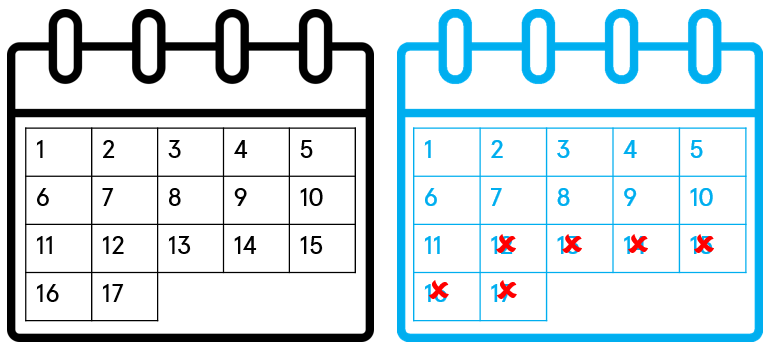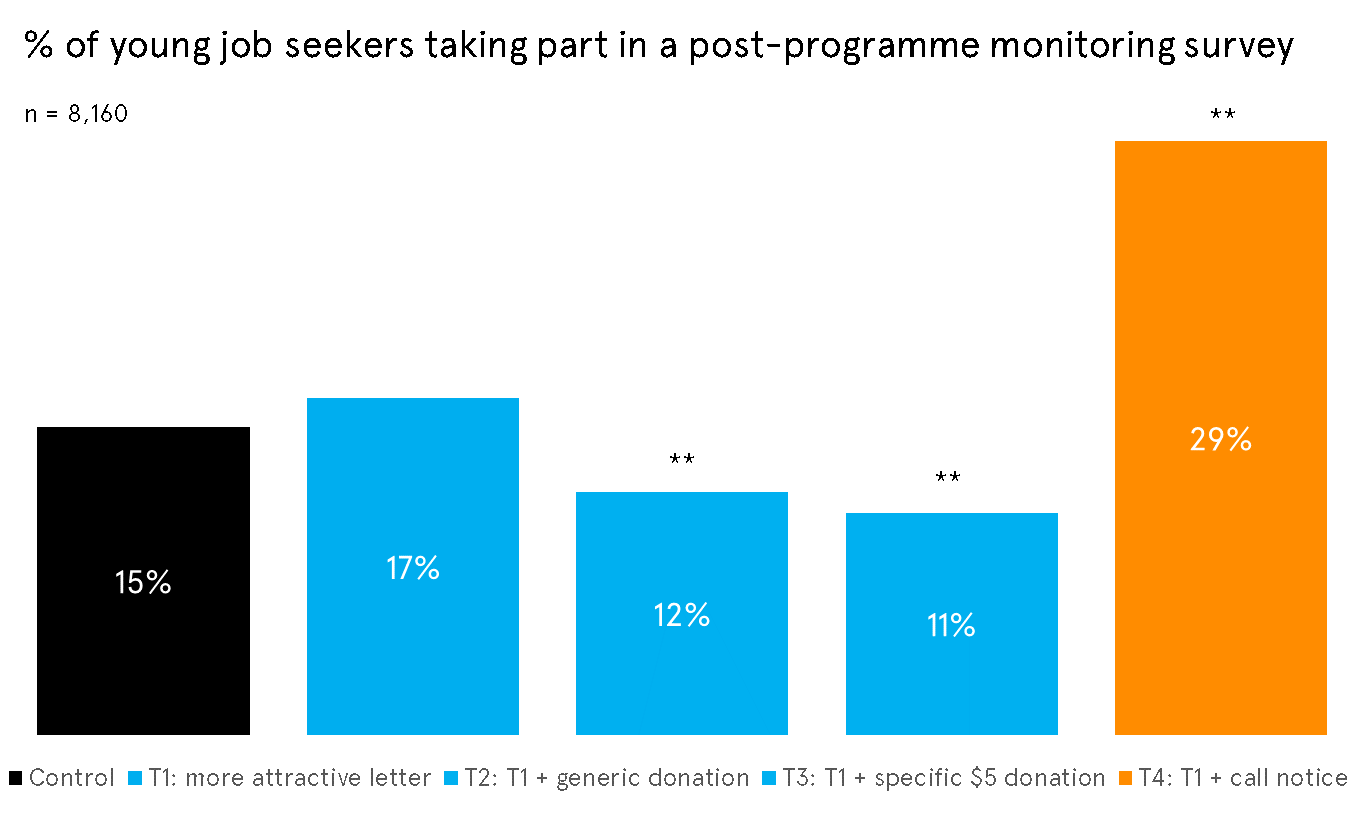Employment is perhaps one of the areas that can benefit the most from the application of behavioural insights and robust evaluation. From both the supply and demand side of the labour market, small changes can have big effects. Small percentage increase to employment figures can mean substantial wellbeing improvements to citizens and communities, and large savings for governments.
Since the opening of BIT Australian office two years ago, we have been working closely with the Australian Department of Employment to help build its internal capabilities in the application of behavioural insights and RCTs. Since then, we worked together on more than 10 projects across the whole spectrum of employment services. Some of these successful projects include:
 Time taken to claim financial incentives by companies falls by 35% using online forms. Partnering with a job service provider in Sydney, we ran a cluster RCT to increase the uptake of financial incentives for companies to hire disadvantaged job seekers. We learnt that simplifying forms for employers and changing the framing of the incentives, to avoid negative signalling about the qualities of the job seekers, led to higher uptake and substantial reduction in red tape, such as time taken to claim the incentives. Findings from this trial helped inform nation-wide changes to the program.
Time taken to claim financial incentives by companies falls by 35% using online forms. Partnering with a job service provider in Sydney, we ran a cluster RCT to increase the uptake of financial incentives for companies to hire disadvantaged job seekers. We learnt that simplifying forms for employers and changing the framing of the incentives, to avoid negative signalling about the qualities of the job seekers, led to higher uptake and substantial reduction in red tape, such as time taken to claim the incentives. Findings from this trial helped inform nation-wide changes to the program.
- Young jobseekers nearly twice as likely to respond to a government survey if there is the prospect of a follow-up call. A trial aimed at increasing survey participation showed that notification of a follow up call from the Department significantly increased response rates. Different one-line changes to the standard survey recruitment letter to young and Indigenous job seekers were tested. We found out that notifying recipients that the Department will call them if they did not respond on time nearly doubled participation rates from 15% to 29%, and more than doubled response rates from Indigenous job seekers (from 8% to 17%).

- Market design meets behavioural economics. We have been conducting research to strengthen the Australian job service market. This project aims to increase job placements through greater collaboration among job service providers without affecting the performance-based competitive nature of the market. This research includes a framed field experiment, in collaboration with Prof. Leibbrandt from Monash University, to test redesigned incentives to foster collaboration. Improving matching mechanisms is crucial in this type of market and this understanding has been successfully applied to markets such as kidney donations.
Other projects include: provide online job search assistance to job seekers; motivate job coaches via self-monitoring performance tools; and easier registration processes for job seekers to the Department job search website.
These projects altogether demonstrate how a better understanding of behaviour of all stakeholders – job seekers, job service providers, employers, and government agencies – can help inform successful trials. The Applied and Behavioural Economics Section (ABES) at the Department of Employment is now one of the leading expert teams in Australia in the application of BI and RCTs, and is at the forefront of testing innovative solutions to improve employment outcomes for all Australians.
If you are interested to know more about the work the Department is doing, please contact behavioural.economics@employment.gov.au
Acknowledgements
The Employment, Productivity, and Economic Growth Team in Australia is Nicky Quinn, Cameron Tan, Min-Taec Kim and Guglielmo Briscese. We also thank Alex Gyani and the research team for their continuous evaluation support.
If you’d like to know more about the work BIT Australia has been doing in this space, please contact guglielmo.briscese@bi.team




